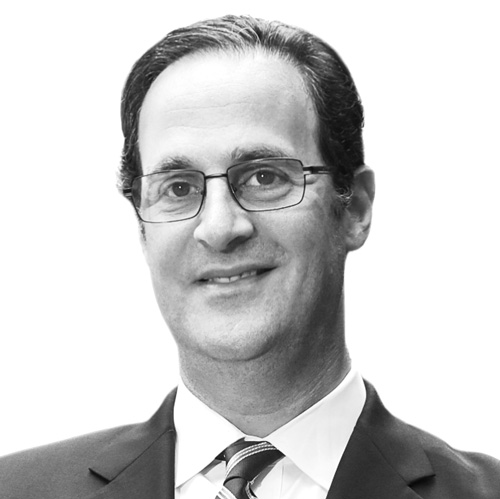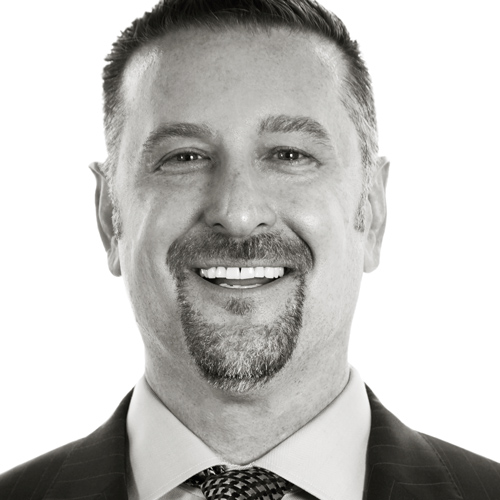Once, during his commute on public transportation to his position as chief human resources officer at L.A. Care Health Plan, Robert Turner was thanked for his organization’s aid by a fellow commuter’s daughter. Another time, a grateful resident told him that L.A. Care employees were lifesavers. “That’s what drives me,” Turner says.
Having worked in several industries in the private, public, and international sectors during his twenty-five-year career as a human resources executive, there was a time when Turner didn’t have the satisfaction that comes with healthcare’s meaningful work. About thirteen years ago, while visiting one of Tenet Healthcare California’s twenty-six hospitals in the Los Angeles area, he witnessed the dedication of the employees. That’s when it struck him.
“I was looking to try to give something back as my career matured,” Turner says. “I was impressed with the caliber of dedication of the doctors, nurses, and technicians. They were saving lives and really helping the people in need.”

Finding His Calling
Before joining Tenet Healthcare in 2004, Turner had spent most of his career as an HR professional at high-tech and manufacturing companies. But Tenet’s recruiters were attracted to Turner’s management experience in the private sector and his multiple advanced degrees: a bachelor’s in political science from Ripon College, a master’s in international relations from Brown University, a master’s in organizational development from Pepperdine University, and a doctorate in management from Pacific Western University. After his initial visit, he decided to head up HR for all of Tenet’s hospitals in California, and in his work there, Turner found meaning in working with truly remarkable employees.
“I was on the committee selecting the caregiver of the year award, and there wasn’t a time it didn’t bring tears to my eyes with the dedication that people had,” he says. “That gave me the bug to do something that was not only beneficial for the organization and my own career, but something that was beneficial for other people, as well.”
After Tenet Healthcare, Turner moved from for-profit to nonprofit healthcare as vice president of human resources at AltaMed Health Services. The largest federally qualified nonprofit health clinic chain serves approximately 350,000 patients, many of them Hispanic residents in South Central Los Angeles, where Turner grew up. He appreciated that AltaMed brought medical services directly to residents of South Central and East Los Angeles. When he was growing up, clinics and independent doctor’s offices were few and far between. Now, he was helping make a difference in a community close to his heart.
Helping Patients Who Need It the Most
Then, in 2013, Turner received a phone call from the nonprofit L.A. Care Health Plan, which was going through a major transition. After the ACA became law in 2010, L.A. Care Health Plan was experiencing exponential growth as federal Medicaid dollars flowed into the Medi-Cal system. Vast numbers of low-income Los Angeles County residents now had health insurance—many of them through L.A. Care. This resulted in a similar explosion of personnel at L.A. Care, from approximately 350 employees to 2,000 over a three-year period.
During the call, Turner realized he could impact many more people at L.A. Care—up to 2.1 million Los Angeles County residents—by helping L.A. Care’s further growth. Now, for the past three years, Turner has served as the healthcare organization’s chief human resources officer, and during that time, he’s spearheaded many projects to help the organization provide quality care to its members.
Happy Employees, Happy Patients
At the center of his work is the idea that satisfied employees provide better care for residents. One of the proudest moments in this realm came in 2016, when Turner worked with L.A. Care CEO John Baackes and the plan’s board of governors to secure a $15 minimum wage for all of L.A. Care’s 1,900 employees—four years before the city of Los Angeles will mandate that pay level in 2020. In fact, L.A. Care was the first major employer in Los Angeles to offer the new $15 minimum wage for all of its employees.
To ensure that L.A. Care employees are continually improving, Turner and his forty employees and five senior directors implemented a new performance-based management system. Employees now set personal goals, and the program measures success quarterly and provides them with feedback from supervisors and opportunities to improve or exceed their initial goals.
Additionally, Turner helped L.A Care restaff and reorganize its recruitment process. The company now has a new, mobile-friendly recruitment website aimed at the higher end of the healthcare market. It also utilizes a service-level agreement that holds recruiters and managers accountable for keeping the recruitment process proceeding promptly. As a result, Turner reports that L.A. Care’s average time to fill a position is thirty-nine days compared with the national average of fifty-two days.
“We want to be able to treat applicants with a significant amount of dignity and respect, get back to them promptly, and manage that process in a way they deserve as professional employees,” he says. “That’s all the way down to entry-level people. I believe if you treat people with respect and you set that bar high at the beginning, people will respond.”
A Focus on Developing Employees
Once employees join L.A. Care, the organization provides them with opportunities for growth and continued learning in an effort to increase retention and satisfaction, Turner says. “As a nonprofit, I cannot be as generous financially as some of our private-sector counterparts, so we do have to focus our team on providing superior-quality service,” he explains. “Just because you are poor doesn’t mean you have to settle for second-class healthcare. To accomplish this, the team has to feel good about themselves.”
To promote its employees’ personal growth, L.A. Care provides up to $7,500 annually for each employee’s education. “Just about everybody here can go someplace else and get more money, so money can’t be the main driver,” Turner says. “Giving back to the community and having that mission-driven passion has to be a primary driver. If someone coming into this organization has that drive and passion, they would never work a day in their life because they have the knowledge that what they are doing is so significant to the people we are helping—things that really matter to this city and the members and their families that we impact. I make sure the organization continues to be committed to taking care of residents to the fullest extent possible.”
In partial recognition of these accomplishments and others, Turner was voted the HR executive of the year in Los Angeles for 2016–17 by the National Human Resources Executive Association.
As L.A. Care Health Plan celebrates its twentieth anniversary, employee retention isn’t the only challenge the future holds. As with any organization that serves Medicaid-reliant populations, repealing the ACA could threaten the organization’s mission. “You don’t throw the whole thing out,” Turner says. “At the end of the day, I still have 2.1 million people in Los Angeles that need our help and don’t have adequate healthcare. So we have to be the best at what we do.”


